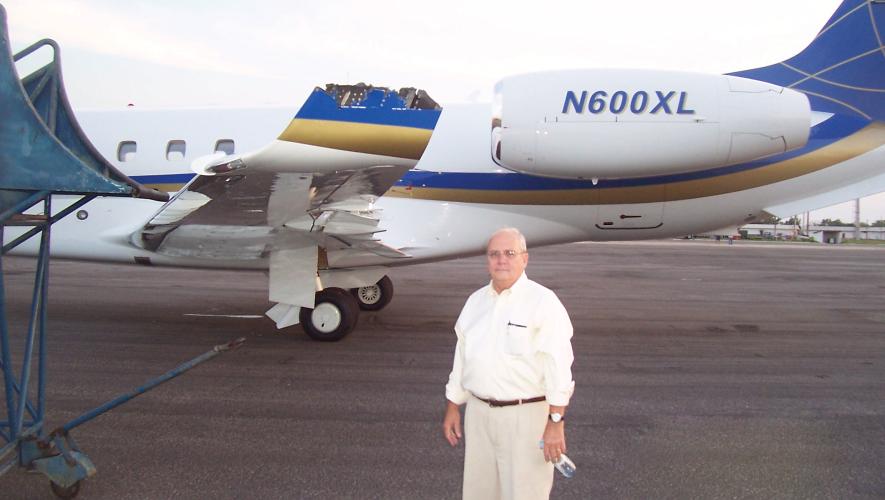Against the bitter aftermath of the 2006 midair between a Legacy 600 and a Gol 737 over the Amazon jungle that was fatal for all aboard the jetliner, Brazilian safety experts recently set out to show the nation’s prosecutors and judges that criminalizing aircraft accidents will never improve aviation safety. During the five-day course, “The Role of the Judiciary in Flight Safety,” more than 100 judges, prosecutors, military officers, safety investigators and legal professionals gathered in Brasília to learn the difference between aviation safety and police investigations, and the dangers posed both to safety and to justice by the misuse of accident safety reports. The course offered different theoretical perspectives on aviation safety, and an inside look at practice with a day at Cenipa, the Air Force’s Center for the Investigation and Prevention of Aviation Accidents, and another at the Brazilian Federal Police’s crime lab, hearing how police investigate accidents for the legal system.
The course is the idea of Brazilian federal judge Marcelo Honorato, who as an Air Force officer had been a general aviation accident investigator. “His double role as judge and safety investigator has been important and useful for Cenipa,” general Luís Roberto do Carmo Lourenço, head of Cenipa, told AIN.
STM minister and air force lieutenant general William de Oliveira Barros said in his keynote speech, “The purpose of this meeting is so you gentlemen know that, even though there must be an inquiry after an airplane accident, especially a fatal accident, you can’t confuse one with the other. A safety investigation is not a criminal investigation.”
“There’s a risk when only information from an [aviation safety] report is used, because then people can be condemned who sometimes have no direct relationship with the accident or who were mentioned only in a hypothesis,” Honorato warned. Another common judicial misconception, he said, is that a safety recommendation can be taken as proof that the recipient is to blame.
He also told the judges and prosecutors that a separate criminal investigation can provide the kind of sound data on which a conviction can be based.
Protected Data
“‘Criminalization of aviation accidents’ is a phrase with the power to leverage disagreement between the aviation and legal communities,” said Federal Police (PF) inspector Rubens Maleiner, before listing where police and aviation specialists differ on what evidence should be accessible to the courts. The major disagreement was cockpit voice recordings and tapes of exchanges between ATC and pilots. “The radio channels are open and anyone can listen to them… So why are ATC communications protected by the Chicago Convention?” Maleiner asked. One of the PF’s four Cenipa-trained accident investigators, Guilherme Nobel Conti, told of investigating the 2007 crash of a Learjet with a fuel imbalance in São Paulo. To see if the fuel pump was operating, investigators compared background noises on the cockpit voice tape to reference recordings of the model’s fuel pump.
The conference’s emphasis was on avoiding the criminalization (or the misuse in civil court) of the safety investigation, especially confidential interviews and safety recommendations. Raw factual data is shared, but Cenipa and the police were told they should interpret the data separately. “The course clarified the lines between Cenipa and Federal Police investigations,” Juliana de A. Paulinyi Dias, one of Embraer’s three internal aviation safety lawyers, told AIN.
Aviation and police experts agreed, for example, on the sharing of flight data recorder information. The proper procedure would be for Cenipa to read the black-box data, then pass it to the police lab to do the same. But the police don’t have the expensive equipment needed, so instead they ask Cenipa for the raw data. Cenipa refuses, the police get a court order, and Annex 13 is respected.
All who spoke agreed on another even more important goal: protecting voluntary testimony in safety investigations from use in court or in administrative proceedings. In fact, the Chamber of Deputies recently passed bill PL 2453/07, which would give the force of law to confidentiality.
Judges and prosecutors were told that if the confidentiality of voluntary testimony is not respected, those involved in future investigations won’t speak up, affecting safety. This is not universally understood and embraced by the Brazilian legal community: at a debate in June AIN heard several ranking São Paulo prosecutors cite laws, precedents and the Constitution to prove that no information can be kept from a prosecutor who asks for it. Those prosecuters left the room before the safety experts spoke.
Honorato proposed a legal foundation for confidentiality: “The court system protects a number of legal goods, the greatest of which is human life. If needful to protect that greatest good, lesser purposes such as punishment can be set aside.”
This is the third time Honorato has administered the course, and ICAO will be sending observers to the next, still unscheduled, edition of this unique effort to explain the workings of the aviation safety system to those in the court system.







